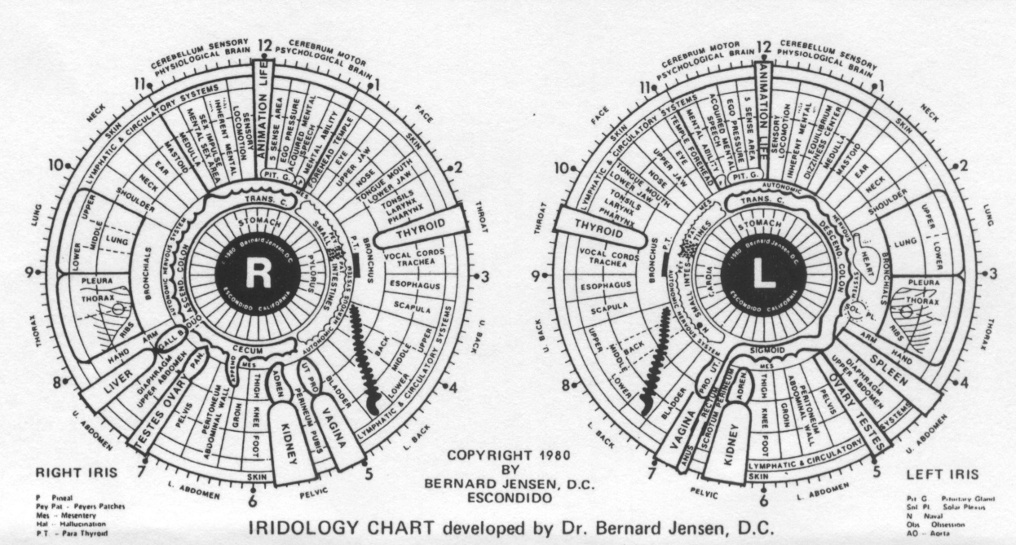 Sorry again for the delay in post, I've had some educational commitments to study for and have another one this Saturday so the delay will last a little longer. I have a Vaccination related post coming, but it's taking a long time to cover so I decided to do a short one on something that seems to come up a lot in the mean time. I should warn you that this one is straight opinion and philosophy, it had to be to publish it quickly.
Sorry again for the delay in post, I've had some educational commitments to study for and have another one this Saturday so the delay will last a little longer. I have a Vaccination related post coming, but it's taking a long time to cover so I decided to do a short one on something that seems to come up a lot in the mean time. I should warn you that this one is straight opinion and philosophy, it had to be to publish it quickly.Anyway, it's on the claim that varying actions, often scientific, are 'messing with nature' and that this in turn is a negative thing. There are a heap of different things I have heard labelled 'messing with nature' as well as being used later as evidence that you shouldn't do the very same.
I do not think that anyone can deny there has been a plethora of problems that have come from things like introducing foreign animals and plants to a foreign environment. The Australian Cane Toad plague is an example of this, however this to me is seemingly more an example more of human negligence over evidence against messing with nature and there have been examples of this working out(look up the Cactoblastis moth, this worked completely in Australia yet the moths are detrimental in the states). The other areas under attack by the 'messing with nature' proponents extend to genetic modification, selective breeding and a whole assortment of areas. So the Cane Toad plague is bad, right? Of course, so why isn't this an open shut case of that we shouldn't mess with nature. It comes down to; what is messing with nature? From what I've seen, it seems to be whatever people need it to be, an easily appliable argument against whatever people don't like.
So where do you draw the line. I'm pretty certain we didn't evolve with a shirt on our back. Are the creation of various fabrics messing with nature. We aren't living in caves or trees so what happened there? Were the houses we live in natural phenomena? If so I'm going to have a whole new view of wonder when I walk through Sydney and look up at the buildings. Are the cars we drive in messing with nature? If so. I guess we better ride, oh wait I guess that would be messing with nature too. My point is that almost everything we do is messing with nature. The average person's food is likely have been selectively bred in some way, grown in farms created by humans, and shipped to your human created store by human created vehicles along human created roads. So I guess every single thing we interact with is messing with nature.
The fact is that the concept of 'natural' is vague and undefined. Take the example of human's use of fire. What is natural not only has grey areas, it is a grey area. I saw an example on a site that goes over the difficulty in the 'natural' argument given to show why natural is better then unnatural that went on to say;
"a diet rich in natural foods―such as fruits, vegetables, and whole grains―is probably better than one based on more artificial foods―such as candy, pastries, and sausages. Also, it seems likely that a natural lifestyle―that is, one based on a natural diet and exercise―is in general a healthier one than a sedentary life spent watching television and eating doughnuts."
The major error in this logic is that you are unfairly comparing 2 sets of things. Just like you can't fairly compare natural poisons with candy, pastries and sausages etc. In the above quote the "natural lifestyle" mentioned is obviously more beneficial for your health then the "artificial" based one but it is an irrelevant comparison to the subject.
For instance ursodeoxycholic acid is used for cholesterol regulation in humans. It's natural source is bile. Otherwise, it can be synthesised. To my knowledge there is no difference in effect on the human body using the same dosage of either synthesised or naturally occurring ursodeoxycholic acid. This is a fair comparison, and looking at it like this there is no preference to be taken.
Human's ability to alter genetics is a way to work with something that we couldn't before but it's no worse then anything else we've been able to do so far. To say there are risks involved with something like GM is a truism i.e. a self-evident, obvious truth. But there are risks involved with everything. Crops will outcross whether they are genetically modified or not.
Another way you can look on this is just another way that humans like to put themselves on a podium. “Animals, whom we have made our slaves, we do not like to consider our equal." - Charles Darwin. For example, Egyptian vultures have learnt to break ostrich eggs with rocks held in their beaks. New Calledonian Crow's have the intelligence to use tools to achieve a variety of tasks. Yet, we aren't running around snatching away the tools used by the animals and telling them off for messing with nature. So why should it only be actions undertaken by humans that can be seen as messing with nature? In my opinion we aren't so great that we should be taken to be the only species who's actions should bear such a label.
Related Article of the Blog
GM Crops: not against nature
Word of the Blog
sacrosanct \SAK-roh-sankt\, adjective:
1. Extremely sacred or inviolable.
2. Not to be entered or trespassed upon.
3. Above or beyond criticism, change, or interference.
Video of the Blog






















